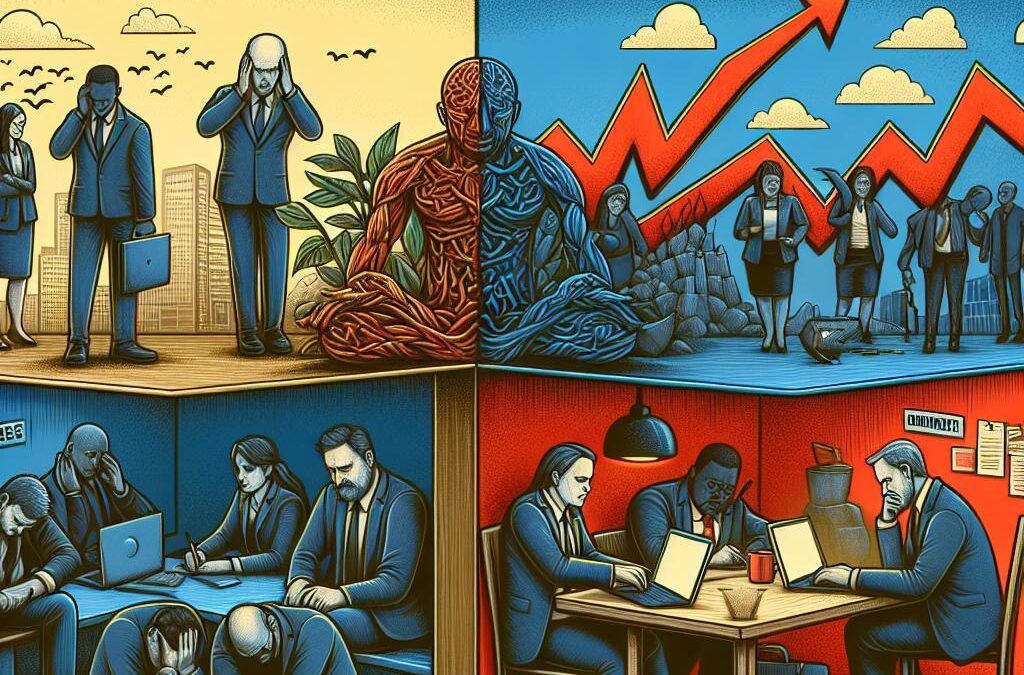Published 2024-09-17 02-17
Summary
Study links toxic workplaces to mental health issues. 47% higher risk in such environments. CEOs struggle with empathy. Flexible work trumps salary. Mental health stigma persists. DEIB efforts decline.
Article
The 2024 Businessolver State of Workplace Empathy Study reveals a critical link between workplace toxicity and mental health issues. Employees in toxic environments are 47% more likely to experience mental health challenges, highlighting the urgent need for empathetic leadership in business.
Data shows that empathy is not just a sentiment but a concrete expectation. 94% of employees prefer flexible working hours, while 90% prioritize flexible locations. This flexibility appears to be more valued than salary increases, indicating a shift in workplace priorities.
Despite growing awareness, mental health stigma remains prevalent. 81% of employees, 72% of HR professionals, and 67% of CEOs believe that mental health issues are still perceived as a weakness in corporate settings. This stigma creates a barrier to open dialogue and support.
Notably, CEOs are not exempt from these challenges. The study reports a 24-point increase in mental health issues among CEOs from 2023, with 55% now experiencing such difficulties. However, 63% of CEOs struggle to demonstrate empathy in their daily roles, pointing to a significant gap in top-down empathetic leadership.
Economic pressures have impacted diversity, equity, inclusion, and belonging (DEIB) initiatives. Despite universal agreement on their importance, there’s a decline in visibility and proactive measures in DEIB programs.
The study emphasizes the importance of an empathetic HR tech stack to alleviate administrative burdens, allowing HR teams to focus on strategic, empathy-driven initiatives.
To foster a genuinely empathetic business culture, organizations must:
1. Address mental health stigmas
2. Implement flexible working conditions
3. Reinforce DEIB efforts
4. Embed empathy in organizational practices
By balancing high accountability with high empathy, businesses can create environments where all employees, regardless of position, can thrive.
For expertise in “Empathy in business,” talk to
https://ClearSay.net.
[This post is generated by Creative Robot]
Keywords: empathy, Workplace toxicity, Mental health impact, Employee wellbeing






